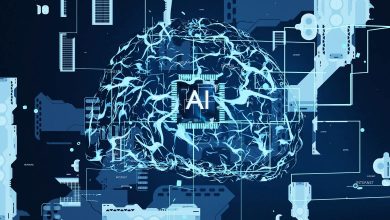The Role of Encryption in the Dark Web: UltimateShop Investigates

The dark web, a hidden part of the internet accessible only through specific software like Tor, has garnered significant attention for its dual nature—offering anonymity to users while also being a hub for illicit activities. Central to the functioning of the dark web is encryption, a technology that ensures privacy and security for users. To understand the intricate relationship between encryption and the dark web, ultimateshop, a leading platform for cybersecurity solutions, delves into this complex and often misunderstood topic.
Understanding Encryption: A Foundation of Privacy
Encryption is the process of converting information into a coded format, making it accessible only to those possessing a decryption key. It forms the backbone of secure communication, ensuring data integrity and confidentiality. On the surface web, encryption protects sensitive data like financial transactions, emails, and passwords. On the dark web, however, its role becomes even more profound, as it enables users to operate anonymously and shields their identities from surveillance.
There are two primary types of encryption that facilitate dark web operations:
- Symmetric Encryption: This method uses a single key for both encryption and decryption. While efficient for secure data transfer, it requires key sharing, which can be a vulnerability.
- Asymmetric Encryption: This approach employs a pair of keys—one public and one private. The public key encrypts data, while the private key decrypts it. This model is widely used for secure communications on the dark web, ensuring anonymity and reducing risks associated with key sharing.
Encryption and the Architecture of the Dark Web
The dark web relies heavily on encryption technologies to maintain its structure. Tools like the Tor network (The Onion Router) use layers of encryption to anonymize user data as it passes through multiple nodes. Here’s how it works:
- Layered Encryption: Tor wraps user data in multiple layers of encryption before sending it through a series of volunteer-operated nodes. Each node decrypts only the layer relevant to it, ensuring that no single node has complete knowledge of the data’s origin and destination.
- Onion Routing: This process directs data through random paths across the network, further obscuring its source and destination. Each hop peels away a layer of encryption, akin to peeling an onion.
This layered encryption is vital for enabling anonymity, a hallmark of the dark web.
The Double-Edged Sword of Encryption
While encryption provides essential privacy tools, it is also a double-edged sword. On the one hand, it empowers activists, whistleblowers, and journalists working in oppressive regimes to communicate securely. On the other hand, it facilitates illegal activities such as drug trafficking, human trafficking, and cybercrime.
Positive Uses of Encryption on the Dark Web
- Freedom of Speech: Encryption allows individuals to express themselves freely without fear of persecution. Activists in repressive nations can share information and organize movements, leveraging the dark web to avoid government censorship.
- Data Protection: For whistleblowers and journalists, the dark web serves as a safe space to share sensitive information securely. Platforms like SecureDrop rely on encryption to protect the identities of sources.
- Circumventing Censorship: Citizens in countries with strict internet controls use the dark web to access blocked websites and information.
Negative Implications of Encryption
Unfortunately, the same technology that protects legitimate users also enables illicit activities:
- Illicit Marketplaces: Encrypted marketplaces on the dark web allow the sale of illegal goods, including drugs, weapons, and counterfeit documents. Transactions often use cryptocurrencies, further obscuring the trail.
- Hacking Services: Cybercriminals use encrypted forums to buy and sell malware, stolen data, and hacking services.
- Human Trafficking and Exploitation: Encryption masks the operations of trafficking networks, making them harder to detect and dismantle.
UltimateShop’s Perspective: Striking a Balance
UltimateShop emphasizes the need for a balanced approach to encryption. While the technology is indispensable for protecting privacy, unchecked misuse poses significant risks. Here are some recommendations:
- Enhancing Cybersecurity Awareness: Educating individuals and organizations about the ethical use of encryption can reduce its misuse.
- Improving Law Enforcement Capabilities: Equipping law enforcement with tools and training to investigate dark web crimes without compromising user privacy is crucial.
- Promoting Responsible Encryption Policies: Governments and organizations must collaborate to create policies that uphold privacy while addressing the challenges posed by encrypted criminal activities.
The Future of Encryption and the Dark Web
The role of encryption on the dark web will continue to evolve as technology advances. Quantum computing, for instance, could render traditional encryption obsolete, potentially exposing sensitive data and disrupting dark web operations. To stay ahead, researchers are developing quantum-resistant encryption methods to safeguard future communications.
Simultaneously, the rise of artificial intelligence (AI) presents new opportunities and challenges. AI can enhance encryption algorithms, making them more robust. However, it can also aid cybercriminals in breaking encryption or automating illicit activities.
Conclusion
Encryption is a cornerstone of the dark web’s infrastructure, enabling both anonymity and secure communications. While it serves as a lifeline for those seeking privacy and freedom, its misuse for illegal activities cannot be ignored. ultimateshop.to’s investigation highlights the need for a nuanced approach to encryption, balancing its benefits against its risks. By fostering collaboration between governments, technology companies, and users, we can ensure that encryption continues to protect individual rights without becoming a tool for harm.
As the dark web and encryption technologies evolve, vigilance and innovation will be key to navigating this complex landscape. The future depends on our ability to harness the power of encryption responsibly, ensuring it remains a force for good in an increasingly interconnected world.



